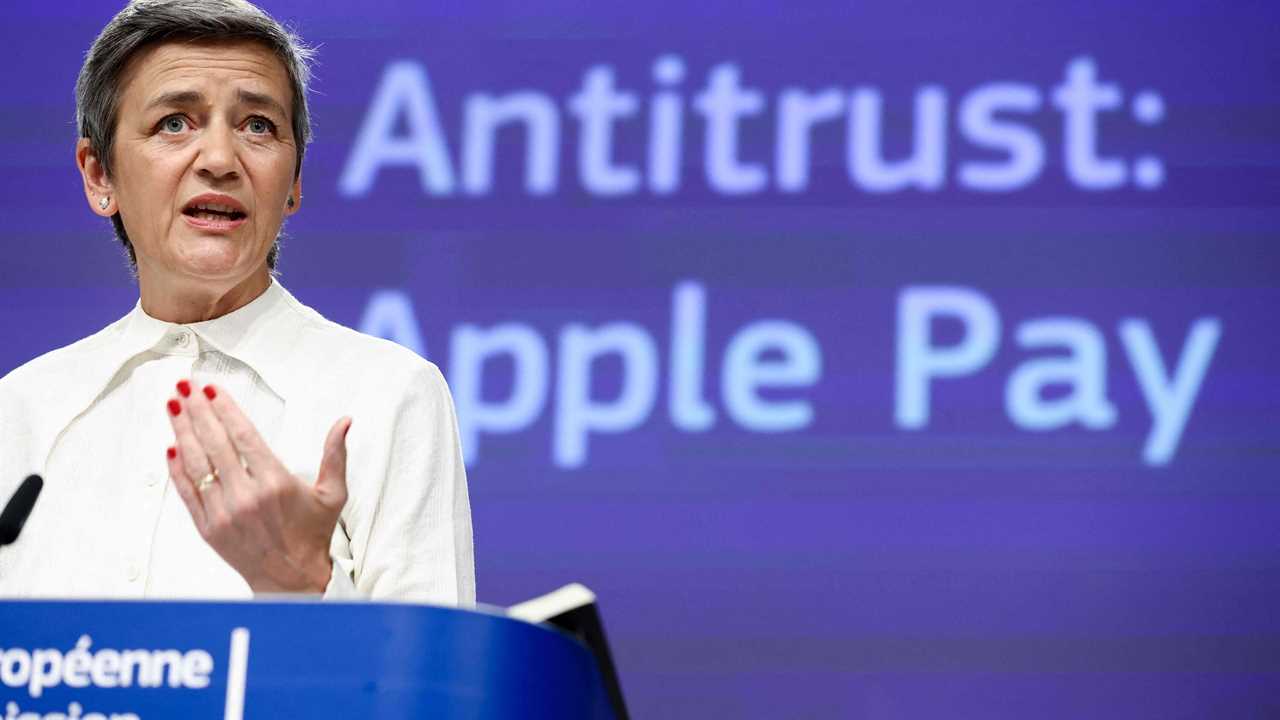
European Union regulators said on Monday that Apple had broken antitrust laws by unfairly undercutting companies whose payment services compete with Apple Pay, in the latest example of European authorities cracking down on the world’s largest tech companies.
Apple has abused its dominance in consumer electronics by not allowing PayPal and others to access technology in the iPhone and Apple Watch that lets people make a purchase with a quick tap, according to a preliminary judgment announced by the European Commission, the E.U.’s executive body.
The commission argues that Apple blocks rival services from accessing the hardware and software on its devices that enables the interaction with payment terminals in stores, known as near-field communication technology or NFC.
The case illustrates Europe’s strategy of using several kinds of action to regulate the digital economy. In addition to antitrust cases, the European Union has agreed to two new laws since March intended to address what policymakers see as anticompetitive business practices and weak policies by internet and social media firms to remove illicit content from their websites and services.
The charges against Apple, following an investigation that began in 2020, were announced in Brussels on Monday by Margrethe Vestager, the European Commission executive vice president in charge of antitrust enforcement. Apple will now have a chance to respond before a final judgment is announced. The company could be fined up to 10 percent of its global revenue. It could also reach a settlement with regulators.
Read More About Apple
- ‘After Steve’: Jony Ive, who helped define Apple’s iconic look, left as the Tim Cook era took hold. A new book details how they and the company changed following Steve Jobs’s death.
- A $3 Trillion Company: Four decades after going public, Apple reached a $1 trillion market value in 2018. Now, the company is worth triple that.
- Trademarks: The tech behemoth has opposed singer-songwriters, school districts and food blogs for trying to trademark names or logos featuring an apple — and even other fruits.
- AirTags: Privacy groups said that Apple’s new coin-size devices could be used to track people. Those warnings appear to have been prescient.
Regulators said Apple has used its control of the iPhone and other products to become the dominant service in the fast-growing area of mobile payments.
“Mobile payments play a rapidly growing role in our digital economy,” Ms. Vestager said in a statement. “We have indications that Apple restricted third-party access to key technology necessary to develop rival mobile wallet solutions on Apple’s devices.”
On Monday, Apple said that it provided an “easy and secure” way to make payments, and that its policies did not restrict competition.
“Apple Pay is only one of many options available to European consumers for making payments, and has ensured equal access to NFC while setting industry-leading standards for privacy and security,” the statement said.
“We will continue to engage with the commission to ensure European consumers have access to the payment option of their choice in a safe and secure environment,” Apple said.
European regulators have been trying to address what they see as abusive business practices by big tech companies that use their dominance in one area to take control of adjacent markets. Last year, Ms. Vestager brought antitrust charges against Apple in response to complaints by Spotify and others about the 30 percent commission the company levies on purchases made inside apps, a case that is still under review.
Google has been fined billions of euros for using the dominance of its search engine, Android mobile operating system and its advertising services to box out rivals. Amazon is under investigation for abusing the dominance of its shopping service to harm merchants who rely on its website to reach customers. And Facebook is being probed for anticompetitive practices related to its control of the market for social networking.
Europe’s tough approach to technology regulation long found little echo in the United States, but American authorities have begun to use antitrust enforcement to crimp the power of Big Tech. The Justice Department has brought antitrust charges against Google and the Federal Trade Commission is going after Facebook.
Did you miss our previous article...
https://trendinginthenews.com/tech-giants/another-firing-among-googles-ai-brain-trust-and-more-discord






